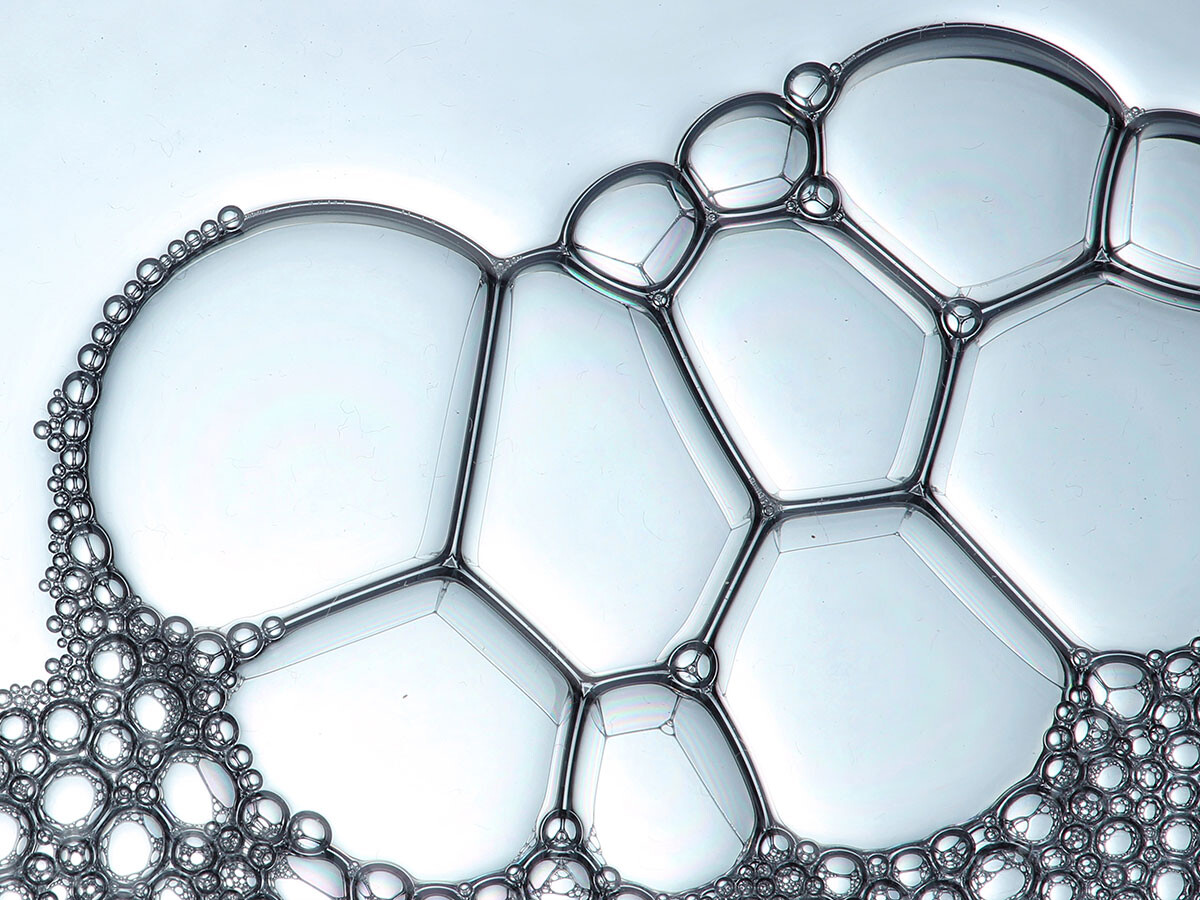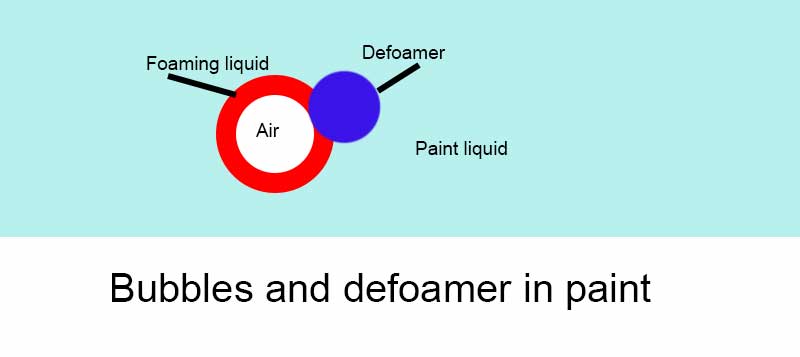Discover the Environmental Impact of Defoamers in Industrial Applications
Discover the Leading Advantages of Making Use Of Defoamers in Industrial Processes
The utilization of defoamers in industrial processes offers a series of engaging advantages that can improve functional performance and product quality. By properly controlling foam production, these agents not just maximize product circulation however additionally add to considerable expense decreases and boosted sustainability. Their application covers several markets, which questions about their role in mitigating environmental influence while making sure regular outcome. Comprehending these benefits is critical for sectors aiming to improve their processes. The implications of adopting defoamers might be extra profound than originally viewed. What particular advantages could your organization harness?
Enhanced Process Effectiveness
Maximizing industrial processes commonly involves dealing with foaming problems, which can impede operational effectiveness. Foam formation can interfere with the proper functioning of devices, minimize the effective usage of resources, and complicate the tracking of crucial specifications. By executing defoamers, sectors can efficiently reduce these problems, resulting in streamlined operations and boosted productivity.
Defoamers work by destabilizing the foam framework, enabling fast collapse and substantial decrease in foam volume. This action not only boosts the circulation of materials via tools, such as pipelines, activators, and mixers, but likewise decreases disturbances caused by foam overflow. As a result, tools downtime is minimized, permitting a more continual and reliable manufacturing procedure.
Additionally, using defoamers can result in lowered energy intake. With much less foam to manage, compressors and pumps can run extra efficiently, resulting in reduced functional costs and a total enhancement in process throughput. Eventually, the tactical use defoamers not only addresses prompt lathering challenges but also adds to an extra efficient commercial environment, cultivating an affordable advantage in a requiring market.
Improved Product Top Quality
The assimilation of defoamers in industrial procedures plays an essential duty in enhancing product quality. By properly regulating foam development, defoamers add to the uniformity and uniformity of last products. Too much foam can result in aeration, which negatively impacts the structure and security of formulations, especially in sectors such as food and coverings, pharmaceuticals, and beverages.

Additionally, defoamers assist in much better mixing and dispersion of active ingredients, causing homogeneity in formulas. This is important in applications where specific ingredient proportions are vital for performance and safety and security. Furthermore, the removal of foam can minimize the risk of contamination throughout production, more securing product honesty.
Ultimately, by boosting product top quality, defoamers not only boost consumer satisfaction yet likewise reinforce brand name credibility. Their duty in maintaining high-grade requirements highlights their importance in contemporary industrial procedures.
Price Reduction Advantages
Executing defoamers in commercial processes can cause substantial cost decrease advantages. By successfully controlling foam formation, defoamers lessen item loss during manufacturing, therefore optimizing material use. This decrease in waste converts directly into lower resources prices, enhancing general functional performance.
Moreover, making use of defoamers can lower energy consumption. Extreme foam can impede tools efficiency, leading to enhanced energy demands to keep manufacturing levels. By reducing foam, defoamers facilitate smoother operations, allowing machinery to run much more effectively and minimizing power expenditures.

In addition, defoamers can shorten processing times. Foam can produce extra challenges that prolong production cycles. By utilizing defoamers, sectors can enhance their procedures, causing faster turn-around times and enhanced throughput. This efficiency not only increases manufacturing yet likewise allows companies to meet market demands extra promptly.

Environmental Impact Reduction
In commercial procedures, the use of defoamers plays a vital role in mitigating environmental impacts linked with foam generation. Foam can lead to substantial operational inadequacies, causing increased discharges and waste generation. By successfully regulating foam, defoamers aid preserve procedure efficiency, thereby decreasing the general ecological impact of procedures.
In addition, excessive foam can overflow containment systems, leading to spills that may contaminate soil and web link water resources. Defoamers assist lessen this danger by making certain that frothing does not go beyond suggested restrictions, advertising conformity with ecological guidelines. This click now aggressive strategy not just safeguards environments however likewise improves the sustainability of industrial practices.
Additionally, the use of defoamers can lower power usage in different processes. defoamers. Decreasing foam formation diminishes the need for added energy-intensive actions, such as raised frustration or pumping, which might otherwise be needed to take care of foam. As a result, the fostering of defoamers straightens with wider sustainability goals by promoting power efficiency while lessening the carbon impact of commercial tasks.
Inevitably, integrating defoamers right into commercial operations is a critical procedure that supports ecological stewardship and accountable resource administration.
Flexibility Throughout Industries
Across numerous markets, defoamers demonstrate impressive flexibility, adapting to the certain needs of varied applications. In the food and beverage industry, for circumstances, defoamers are important to keeping product top quality by stopping foam development during handling, which can affect appearance and flavor. In a similar way, in the pharmaceutical sector, defoamers guarantee the security of formulations, improving item effectiveness and uniformity.
In the chemical production world, defoamers facilitate smoother procedures by decreasing foam in reaction vessels, therefore boosting yield and minimizing downtime. The paper and pulp industry depends on defoamers to boost the efficiency of pulp handling and paper production, making sure optimum product stability. Furthermore, in wastewater therapy facilities, defoamers play an important duty in controlling foam during aeration processes, resulting in better therapy outcomes.
The flexibility of defoamers includes the oil and gas sector, where they assist in managing foam in boring fluids and production procedures. By customizing formulations to fulfill particular market demands, defoamers offer as indispensable tools that enhance operational efficiency, product quality, and overall procedure effectiveness across a multitude of sectors. Their adaptability underscores their value in modern see here now industrial applications.
Verdict
In verdict, the use of defoamers in commercial processes provides countless advantages, consisting of boosted performance, enhanced item quality, considerable price reductions, and positive ecological influences. The integration of defoamers represents a calculated approach to dealing with obstacles associated with foam administration in numerous manufacturing environments.
Eventually, the critical use of defoamers not only addresses instant frothing obstacles but also contributes to a much more effective industrial ecosystem, fostering a competitive benefit in a requiring market.
In commercial procedures, the usage of defoamers plays an essential function in mitigating environmental effects connected with foam generation. By efficiently managing foam, defoamers assist keep procedure performance, therefore lowering the overall ecological impact of procedures.
In addition, in wastewater therapy centers, defoamers play an essential duty in controlling foam throughout oygenation procedures, leading to enhanced therapy results.
